
Afghanistan Economic Outlook
October 2024
Afghanistan Economic Outlook, is a creative initiative of the Afghanistan Economic and Legal Studies Organization (AELSO) which reflects most important & the latest economic events that happened during a month in Afghanistan.
By reading this economic newsletter, that has designed in three languages (Pashto, Dari & English), you can get a wider overview of Afghanistan’s economic situation.
UNAMA Aims to Aid Afghan Small Businesses, Industrial Growth: Otunbayeva
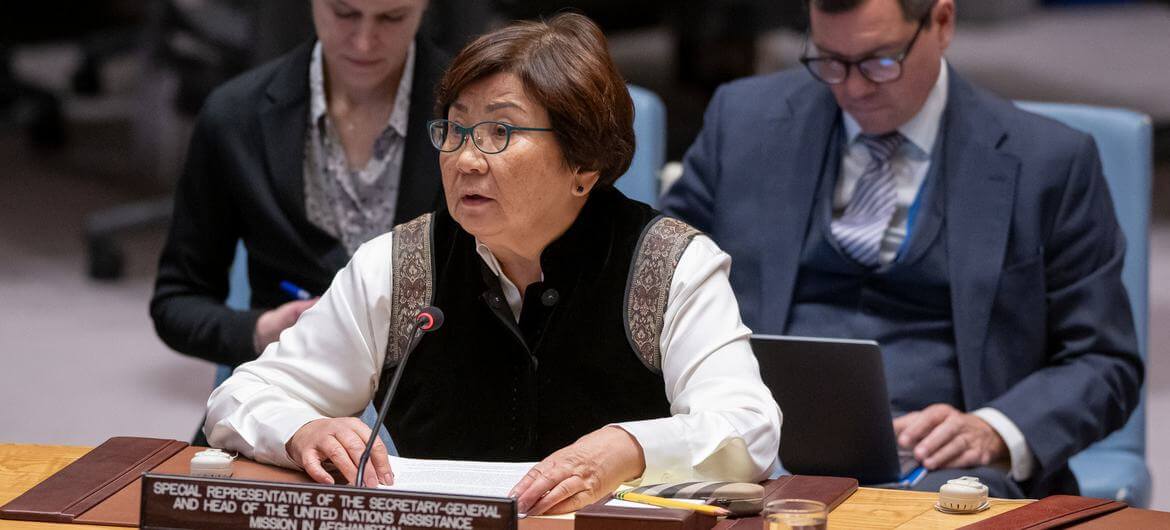 Roza Otunbayeva, the Special Representative of the Secretary-General and Head of UNAMA, said during her visit to the third Imam Abu Hanifa Exhibition that they support the organization of such exhibitions in Afghanistan.
Roza Otunbayeva, the Special Representative of the Secretary-General and Head of UNAMA, said during her visit to the third Imam Abu Hanifa Exhibition that they support the organization of such exhibitions in Afghanistan.
In her remarks, Otunbayeva added that they aim to support small businesses in Afghanistan by establishing microfinance banks.
She said: “Regarding support to private business … in each province we have ambition to open up microfinance banks and in 34 provinces, it will be very important for people, for poor people, in deprived areas so that they can receive a small loan, which can help keep businesses running.”
In her remarks, Roza Otunbayeva said that industrial parks in Afghanistan face a shortage of electricity, and it is necessary to attract foreign investment to Afghanistan.
“we visited the industrial parks, and there is a lack of electricity there. It is our duty to attract investors to Afghanistan and build trust,” said the UNAMA head.
Mohammad Younus Mohmand, the First Deputy of the Afghanistan Chamber of Commerce and Investment, said: “We have issues with transit in some countries. If this problem is resolved through the United Nations, as Afghanistan is a landlocked country and has ratified international conventions, the people of Afghanistan should be able to use the ports of neighboring countries.”
This UN official also added that during the third Doha meeting, it was decided to create a working group in the area of private businesses, and the international community, embassies, the Islamic Emirate government, and the United Nations will work to improve the situation.
Chinese Envoy Stresses Need for Private Sector Growth in Country
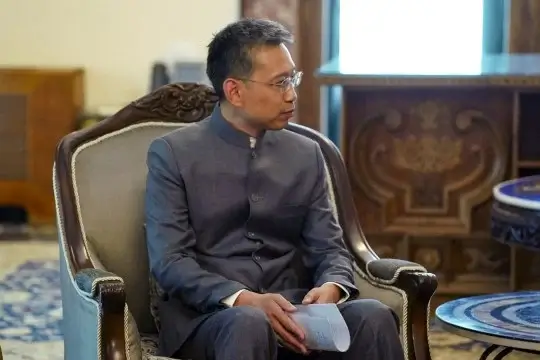 Zhao Xing, the Chinese Ambassador to Afghanistan, stressed supporting the private sector and boosting investment in Afghanistan during his visit to the Barikab Industrial Park in Parwan province. The ambassador highlighted that there are investment opportunities in Afghanistan, especially in this industrial park.
Zhao Xing, the Chinese Ambassador to Afghanistan, stressed supporting the private sector and boosting investment in Afghanistan during his visit to the Barikab Industrial Park in Parwan province. The ambassador highlighted that there are investment opportunities in Afghanistan, especially in this industrial park.
Zhao Xing said: “For economic growth, supporting infrastructure is very important. Considering the security situation is stable, if more opportunities are provided, we can attract Chinese investors to come and work in Afghanistan.”
In addition to the Chinese ambassador, the UN Humanitarian Coordinator for Afghanistan and other international organization officials also visited the Barikab Industrial Park. The visit aimed to support Afghanistan’s private sector, address infrastructure challenges, and resolve electricity shortages faced by manufacturing companies.
Indrika Ratwatte, the UNAMA deputy special representative for Afghanistan, said: “The long-term sustainable development of Afghanistan requires the private sector and the economy to improve and within the economy the private sector is a very important role and we are trying to see, how we can support the private sector in Afghanistan.”
“If we want permanent stability in Afghanistan, we can achieve it through the growth of the private sector. We are ready to support the private sector in Afghanistan.”
Mohammad Edris Anwari, the Deputy Governor of Parwan, said: “They closely observed the issues related to infrastructure and electricity and promised to assist in these areas.”
Ahmadullah Zahid, the Deputy Minister of Industry and Commerce, stated that better investment opportunities now exist within Afghanistan. Zahid pledged the provision of opportunities for investors and the resolution of challenges faced by industrial parks in the country.
Ahmadullah Zahid said: “Security is ensured, and investment opportunities are available in every part of Afghanistan.”
Abdul Bari Omar, the CEO of Breshna Company, said: “We have provided 10 megawatts of electricity to the Barikab Industrial Park, and we have several other projects in progress to supply electricity to all industrial parks, including the capital.”
According to the UN Humanitarian Coordinator for Afghanistan, the third Doha meeting focused on supporting the private sector and combating drugs, with the international community promising serious cooperation with the caretaker government in these areas.
Oil Extraction at Qashqari Surpasses 5,000 Barrels Per Day
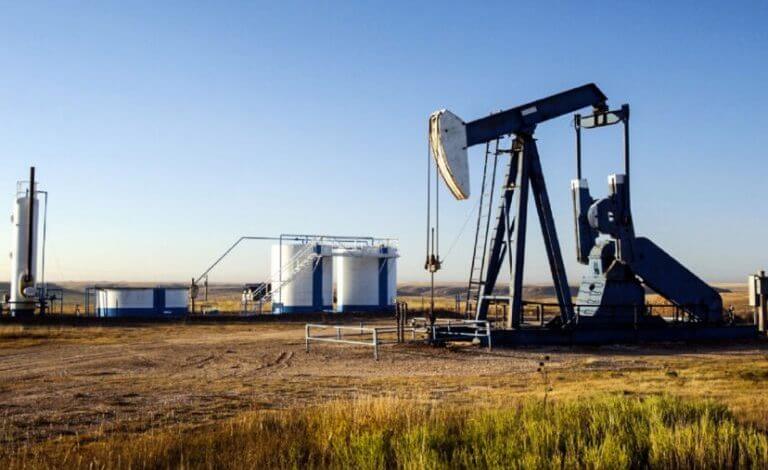 With the opening of a new oil well in the Qashqari region of Sar-e Pol province, oil extraction has increased to over 5,000 barrels per day.
With the opening of a new oil well in the Qashqari region of Sar-e Pol province, oil extraction has increased to over 5,000 barrels per day.
Officials from the extraction company have announced the transfer of 79 trucks of advanced equipment to boost oil extraction in Qashqari and Zamarud Sai in Jawzjan province, and they have stated that 121 more trucks of equipment will arrive soon.
Amruddin Alizi, the public relations officer of the Qashqari oil extraction company, said: “With the opening of well number 23 in the Qashqari oil field, a significant phase has begun. The AF- China company plans to soon start drilling more wells in Qashqari, Aq Darya, and Zamarud Sai, and with the drilling of this well, our oil extraction levels will be greatly enhanced.”
Several workers in this oil field have called on interim government officials, traders, and both domestic and foreign investors to make more efforts to create additional job opportunities.
Mohammad Nader, one of the workers, said: “The salary we receive is enough for us, and we hope more companies will come to our country to create more job opportunities for our compatriots.”
Mohammad Azim, another worker, told media: “Our village is located between two mines, and we are satisfied with this work. We hope for more investments like this.”
Local officials in Sar-e Pol say that with the increased oil extraction in Qashqari, more opportunities for investment in the province have been created.
Mohammad Younus Alfat, the representative of the Sar-e Pol provincial authority, said: “There is no security issue in Sar-e Pol province, and the environment is ready for both domestic and foreign investors.”
The Amu Darya oil field, which includes the Qashqari, Angut, Aq Darya, Bazar Kami, and Zamarud Sai oil regions, was contracted with a Chinese company on January 5, 2023.
Taliban sign $1 billion gas extraction deal with Uzbek company
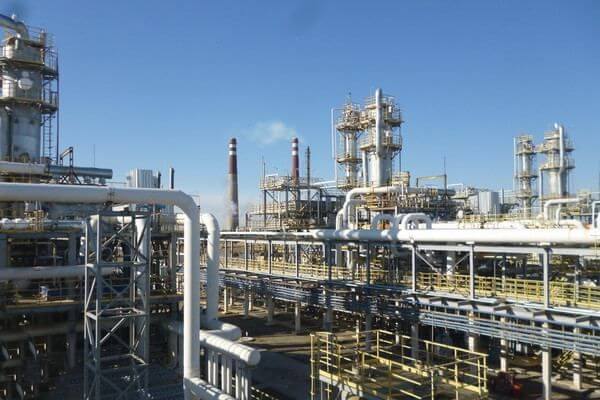 Taliban officials signed a $1 billion contract on Thursday with the Uzbek company ERIELL Group for gas extraction in the Tuti Maidan area of Jawzjan province, in northern Afghanistan. The signing ceremony took place in Kabul.
Taliban officials signed a $1 billion contract on Thursday with the Uzbek company ERIELL Group for gas extraction in the Tuti Maidan area of Jawzjan province, in northern Afghanistan. The signing ceremony took place in Kabul.
Hidayatullah Badri, the Taliban’s minister of mines, said the contract spans a ten-year period.
He noted that ERIELL Group would invest $100 million in the project during its first year.
Additionally, the project is expected to generate 100 megawatts of electricity within the first two years.
The agreement comes amid concerns from Afghan citizens about transparency in the Taliban’s management of mining revenues.
Critics argue that income from the country’s natural resources, considered national assets, should be directed toward the public good.
China waives tariffs on Afghanistan’s exports amid growing trade ties
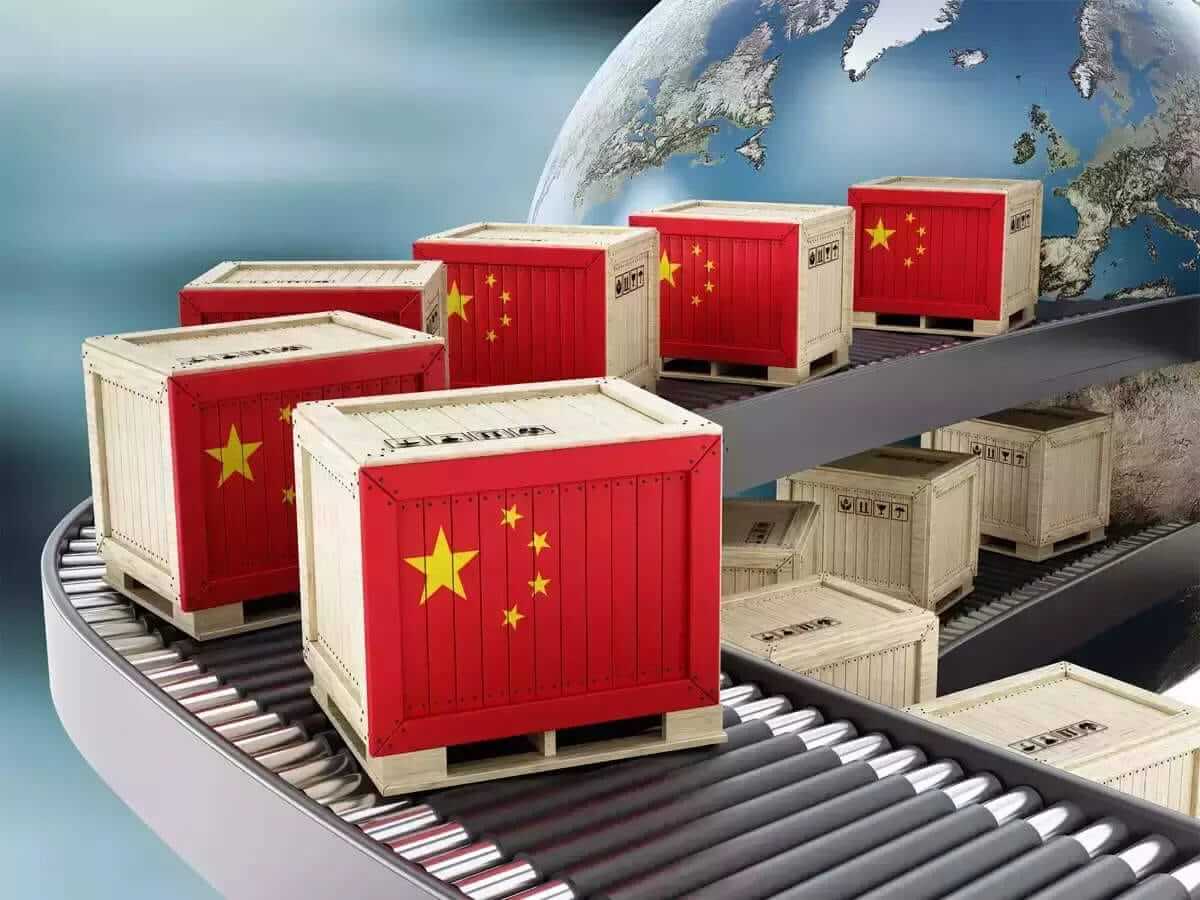 BEIJING — China has waived customs tariffs on Afghanistan’s exports, according to a statement from the Taliban-run embassy in Beijing.
BEIJING — China has waived customs tariffs on Afghanistan’s exports, according to a statement from the Taliban-run embassy in Beijing.
Liu Jinsong, Director-General of the Asian Affairs Department of China’s Foreign Ministry, shared the news during a meeting with Bilal Karimi, the Taliban-appointed ambassador to China.
The statement added that Afghanistan is among 40 countries benefiting from China’s recent tariff exemption on imports, as Beijing seeks to strengthen its trade relationships.
Despite this development, Afghan traders report ongoing challenges in exporting goods, including banking restrictions, lack of cold storage facilities at border crossings, and rising costs due to international sanctions. Many Afghan traders say that sanctions on Afghan banks under Taliban control have complicated financial transactions, creating significant obstacles for the export sector.
31st agricultural and livestock exhibition opens in Kabul
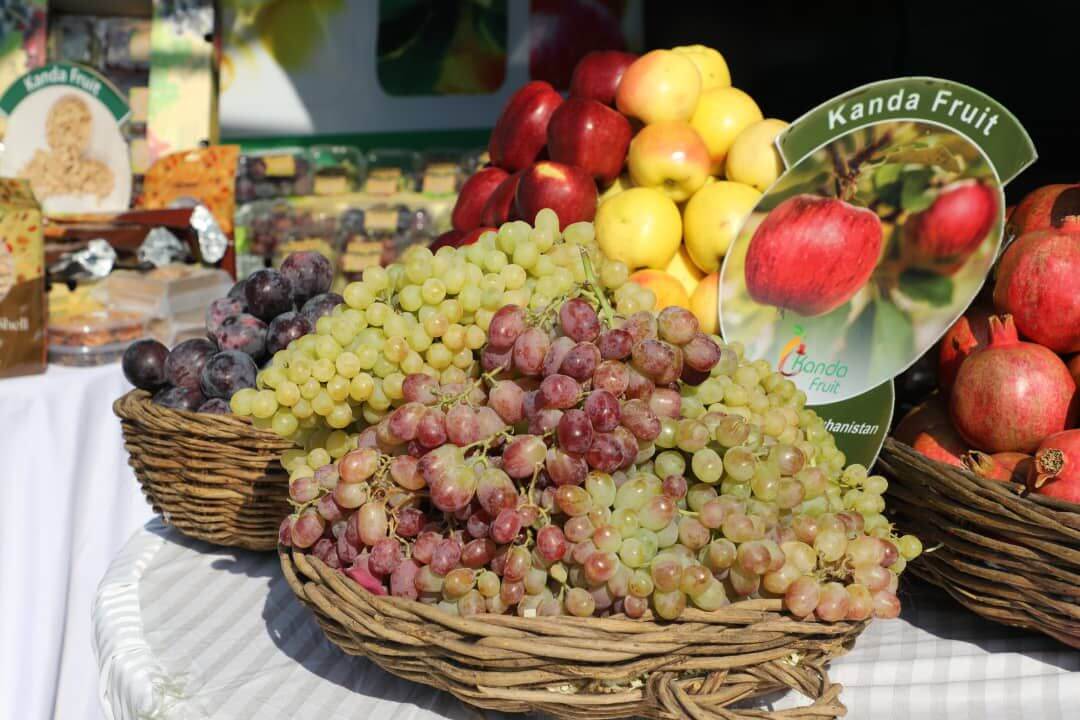 KABUL, Afghanistan — The 31st Agricultural and Livestock Exhibition opened on Wednesday at Badam Bagh in Kabul, showcasing a wide range of agricultural products and innovations.
KABUL, Afghanistan — The 31st Agricultural and Livestock Exhibition opened on Wednesday at Badam Bagh in Kabul, showcasing a wide range of agricultural products and innovations.
The four-day event features agricultural produce, horticulture, livestock, farming machinery, saffron, medicinal plants, irrigation equipment, fruit and non-fruit tree saplings, solar power devices, and handicrafts. The exhibition is open to the public, highlighting various facets of Afghanistan’s agricultural sector.
At the opening ceremony, Abdul Ghani Baradar, the Taliban’s deputy chief minister, stated that significant plans are underway to modernize Afghanistan’s agricultural industry.
Despite the event’s focus on progress, farmers across various provinces have voiced concerns over the lack of infrastructure to support their industry, particularly the absence of cold storage facilities. Recently, farmers in Herat told Amu News that they have been forced to sell their onion crops at reduced prices due to limited local support and insufficient resources from aid organizations.
They also cited persistent challenges such as water shortages and limited access to chemical fertilizers, which continue to impact their productivity and livelihoods.
Kandahar exports over 6,000 tons of pomegranates amid trade challenges
 Kandahar Province has exported 6,015 tons of pomegranates this year, generating $3.87 million in revenue, according to a statement from the Taliban-controlled Department of Information and Culture in Kandahar.
Kandahar Province has exported 6,015 tons of pomegranates this year, generating $3.87 million in revenue, according to a statement from the Taliban-controlled Department of Information and Culture in Kandahar.
The prized Kandahar pomegranates have reached markets in the United Arab Emirates, India, the United Kingdom, Kyrgyzstan, Lebanon, and Pakistan.
Despite this success, Afghan traders report ongoing challenges in exporting their goods.
Traders have highlighted the lack of adequate cold storage facilities, rising customs fees, visa acquisition issues, and complications in banking due to international sanctions.
These restrictions have made it difficult to transfer funds, adding significant hurdles for exporters aiming to reach foreign markets.
Afghan Carpet Exports Surpass $8 Million in 6 Months
 Akhundzada Abdul Salam Jawad, spokesperson for the Ministry of Industry and Commerce, said that more than $8 million worth of carpets were exported in the first six months of the current solar year.
Akhundzada Abdul Salam Jawad, spokesperson for the Ministry of Industry and Commerce, said that more than $8 million worth of carpets were exported in the first six months of the current solar year.
According to the spokesperson, Afghanistan has mostly exported carpets to Pakistan, Turkey, the United Arab Emirates, and Uzbekistan. Efforts are being made to increase carpet exports by providing more facilities for traders.
Akhundzada Abdul Salam Jawad added: “During the first six months of 1403 (solar year), a total of more than 2.3 million kilograms of carpets worth 8.7 million dollars were exported to countries such as Pakistan, Turkey, the United Arab Emirates, Uzbekistan, Italy, the United States, India, China, and others.”
Noor Ahmad Noori, head of the Union of Carpet Producers and Exporters, said: “Afghan carpets have a unique style and recognition among global customers. No country’s carpets can replace Afghan carpets.”
Carpet weaving is considered one of the important industries in the country, with most citizens in the northern provinces, especially Jawzjan, Balkh, Faryab, and Sar-e Pol, engaged in carpet weaving.
Meanwhile, Iranian media reported that the head of Iran’s Commission for Arts and Handicrafts said that the smuggling of carpets from Afghanistan has filled the market for Iranian handmade carpets.
Several carpet sellers have said that holding exhibitions inside and outside the country would increase carpet sales and exports.
Kambir, an Afghan carpet seller, told TOLOnews: “We request the Islamic Emirate to reopen air corridors and facilitate us so that we can more easily export carpets to European countries, the United States, and Australia.”
The Afghan Carpet Union has consistently emphasized its participation in national and international exhibitions of the carpet industry and said that if issues in the visa issuance process for traders are addressed and air corridors are activated, carpet exports to various countries will increase further.
SIGAR: Cash Transfers Stabilize Afghanistan's Economy
 The Special Inspector General for Afghanistan Reconstruction (SIGAR), in its latest report, has described the transfer of cash to Afghanistan as a lifeline for the country’s economy.
The Special Inspector General for Afghanistan Reconstruction (SIGAR), in its latest report, has described the transfer of cash to Afghanistan as a lifeline for the country’s economy.
In the report, SIGAR highlights the problems caused by disruptions in international banking transfers and the liquidity crisis that followed the return of the Taliban. It said that the United Nations has been forced to physically transfer cash to Afghanistan.
The report also said that this aid has benefited the Islamic Emirate. However, officials of the Islamic Emirate have consistently denied any involvement in these funds.
The Ministry of Economy of the Islamic Emirate has responded to the report, calling SIGAR’s assessment unrealistic.
Abdul Rahman Habib, spokesperson for the Ministry of Economy, said: “The Ministry of Economy considers SIGAR’s report, which negatively assesses Afghanistan’s economic situation, far from the actual reality.”
“The best option is to credit the funds into the United Nations’ or any relevant organization’s bank accounts, and through those accounts, allocate the aid to the people of Afghanistan,” said Siar Quraishi, an economic expert.
Other economic experts have also provided diverse opinions on SIGAR’s latest report.
“The cash packages transferred to Afghanistan by the United Nations have had a significant impact on price stability, exchange rates, and resolving the liquidity problem in the country,” said Mir Shakeb Mir, an economic expert.
“You see, SIGAR always publishes reports in a way that contains a small amount of truth, but also hides part of the truth when releasing its report,” said Abdul Ghaffar Nizami, another economic expert.
According to SIGAR statistics, in 2022 and 2023, the United Nations transferred a total of $3.6 billion in cash to Afghanistan, which amounts to about $1.8 billion per year. These funds have been kept in designated UN accounts in private banks.
Afghanistan trade exhibition opens in Kazakhstan
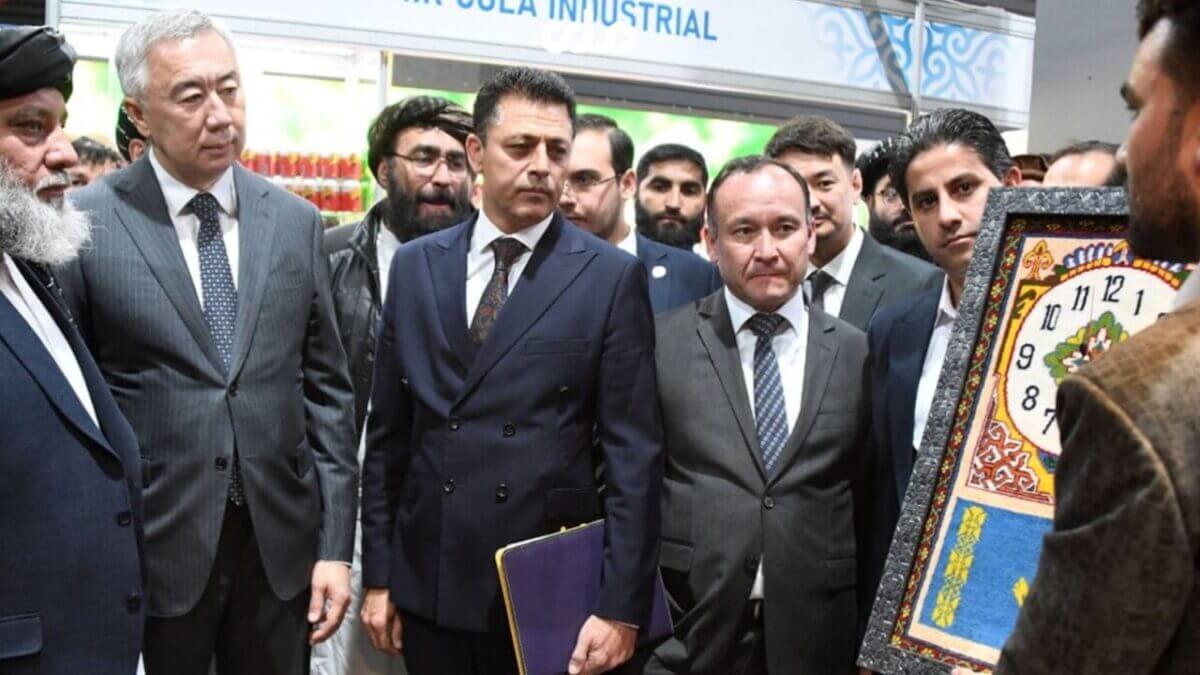 ALMATY, Kazakhstan — An exhibition showcasing Afghanistan’s products and goods opened in Almaty, Kazakhstan, on Monday with the participation of Afghan business leaders and representatives from the private sector.
ALMATY, Kazakhstan — An exhibition showcasing Afghanistan’s products and goods opened in Almaty, Kazakhstan, on Monday with the participation of Afghan business leaders and representatives from the private sector.
According to a statement from the Taliban-run Ministry of Industry and Commerce, Nooruddin Azizi, the Taliban’s minister of industry and commerce, emphasized the importance of such events for strengthening trade relations between the two countries during the opening ceremony.
Kazakhstan’s deputy prime minister, who also attended the event, expressed Astana’s desire to expand cooperation with Kabul, particularly in the areas of trade, economics, transportation, logistics, and energy.
Afghanistan’s products will be on display at the exhibition for three days, with 70 booths dedicated to showcasing a range of goods from Afghanistan.
Investor Interest in Urban Development Rising: Ministry
 The Ministry of Urban Development and Housing reported an increase in interest from domestic and foreign investors in housing and urban development.
The Ministry of Urban Development and Housing reported an increase in interest from domestic and foreign investors in housing and urban development.
Mohammad Kamal Afghan, spokesperson for the ministry, said that investors from Iran, Pakistan, South Africa, Turkey, Qatar, and China have expressed interest in investing in these areas.
According to Afghan, domestic and foreign investors have invested in projects such as New Kabul, the Qatari project in Khushal Khan, the Nile Bagh project in Darul Aman, and various other housing projects in the provinces of Kandahar and Helmand.
The spokesperson of the Ministry of Urban Development and Housing said, “Qatar and China are investing in housing in Afghanistan as grants, and other investors from countries like Turkey, Iran, Pakistan, and South Africa have held meetings with the minister, and preliminary discussions have also been conducted with them.”
Some economic experts consider foreign investment in urban development and housing not only significant for creating job opportunities for the Afghan people but also vital for urban planning.
Abdul Zahoor Madbar, an economic expert, said: “It is essential to establish correct economic and strategic relations with the world, providing facilities for them, and if they are interested in investing in sectors like agriculture, infrastructure, and development, having proper relations can reflect these facilities back to us more broadly, allowing us to reap significant and optimal results.”
Abdul Shakoor Hadawal, another economic expert, said, “We ask the Islamic Emirate to urgently provide facilities for these countries and their traders so Afghanistan can move towards prosperity and employment opportunities can be created for the people.”
Previously, the Ministry of Urban Development and Housing, in outlining its annual achievements, had announced the approval of 57 urban development plans in the past year, adding that identifying over 3,100 cases of urban violations and monitoring 443 construction projects were among the ministry’s key achievements over the past year.
Afghanistan Exports $257 Million in Dried Fruits Over 9 Months
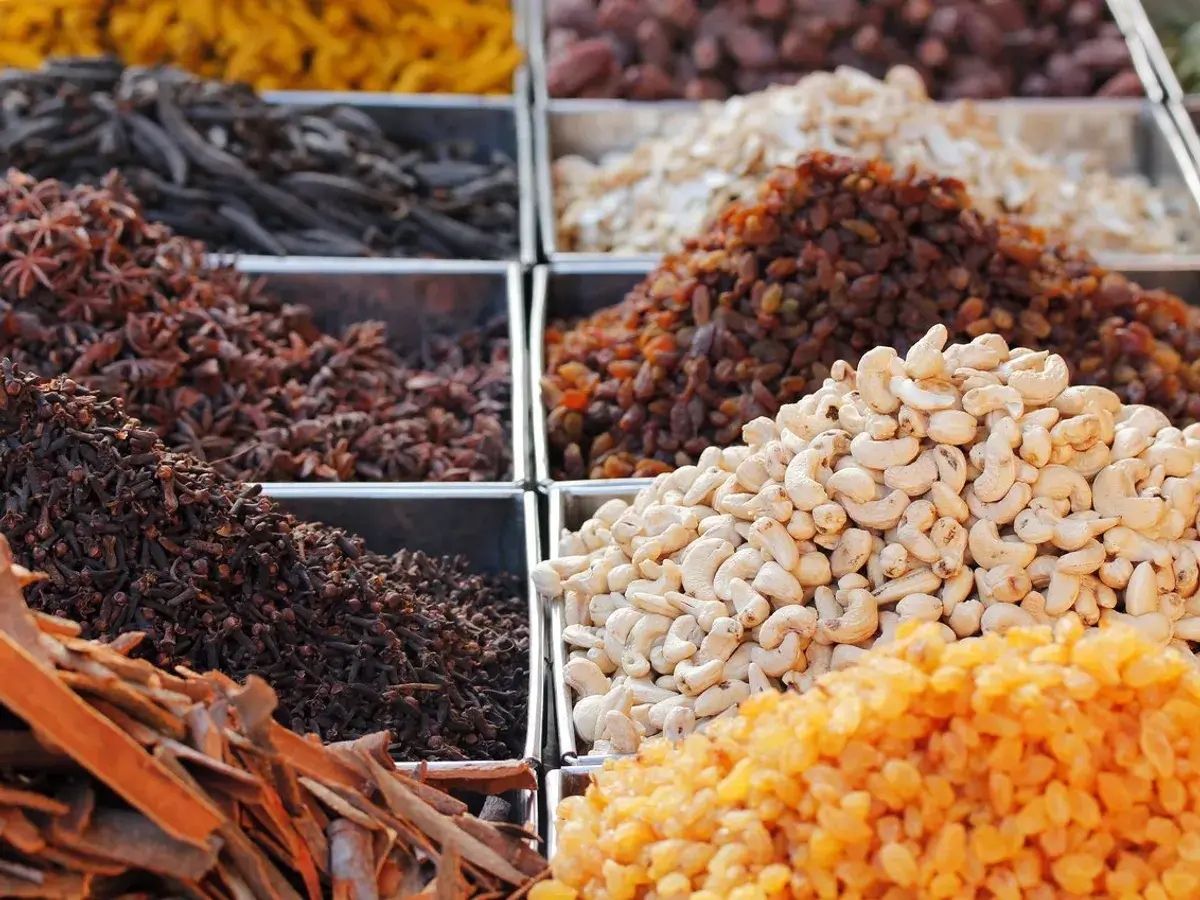 In the first nine months of the current year, approximately $257 million worth of dried fruits has been exported from Afghanistan.
In the first nine months of the current year, approximately $257 million worth of dried fruits has been exported from Afghanistan.
According to Akhundzada Abdul Salam Jawad, spokesperson for the Ministry of Industry and Commerce, raisins, figs, pistachio kernels, almonds, and pine nuts are among the dried fruits exported to India, Pakistan, the United Arab Emirates, China, and Russia.
Jawad said, “Afghanistan’s dried fruit exports in the past nine months have reached countries including India, Pakistan, the United Arab Emirates, Russia, China, the United Kingdom, Germany, Canada, Italy, and others, with a total volume of 96,300 tons valued at around $257 million.”
Meanwhile, some dried fruit traders state that increasing air cargo flights is necessary to further boost exports.
Mohammad Qasim Omarkhail, a trader, said: “We request that the Islamic Emirate provide us with land and support for the construction of packaging and processing facilities.”
Another trader, Nisar Ahmad, said: “One of our main challenges is obtaining visas. Around 90% of Afghanistan’s dried fruit exports go to India, but for the past three years, India has not issued visas to Afghans.”
Data from the Ministry of Industry and Commerce indicates that most dried fruit exports have gone to countries such as India, Pakistan, the United Arab Emirates, Russia, China, the United Kingdom, Germany, Canada, and Uzbekistan.
Recent Afghanistan Economic Outlook
Join to our Newsletter
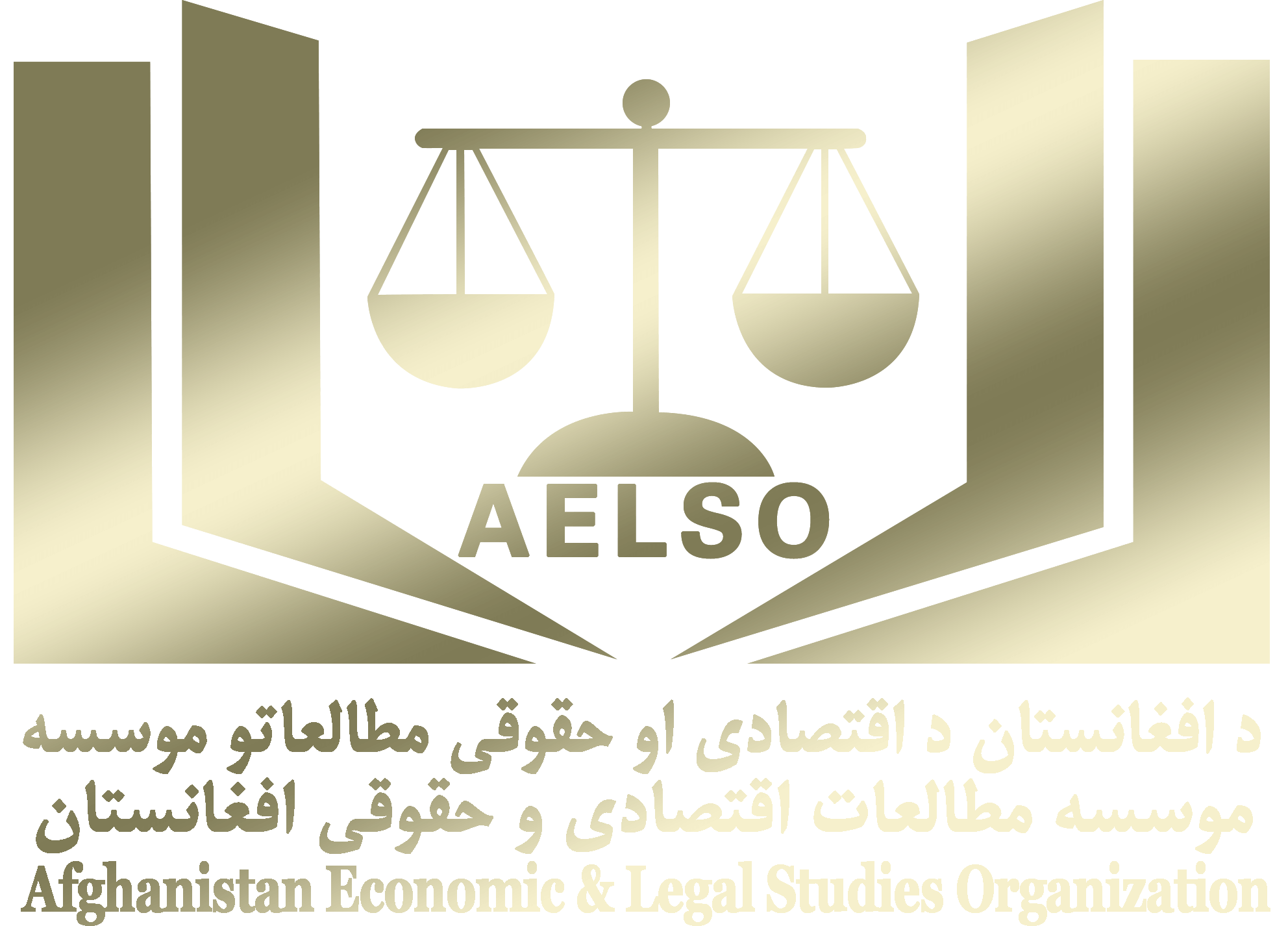
Advancing the Ideas for a Peaceful and Prosperous Afghanistan
© 2024 Copyright Afghanistan Economic & Legal Studies Organization.